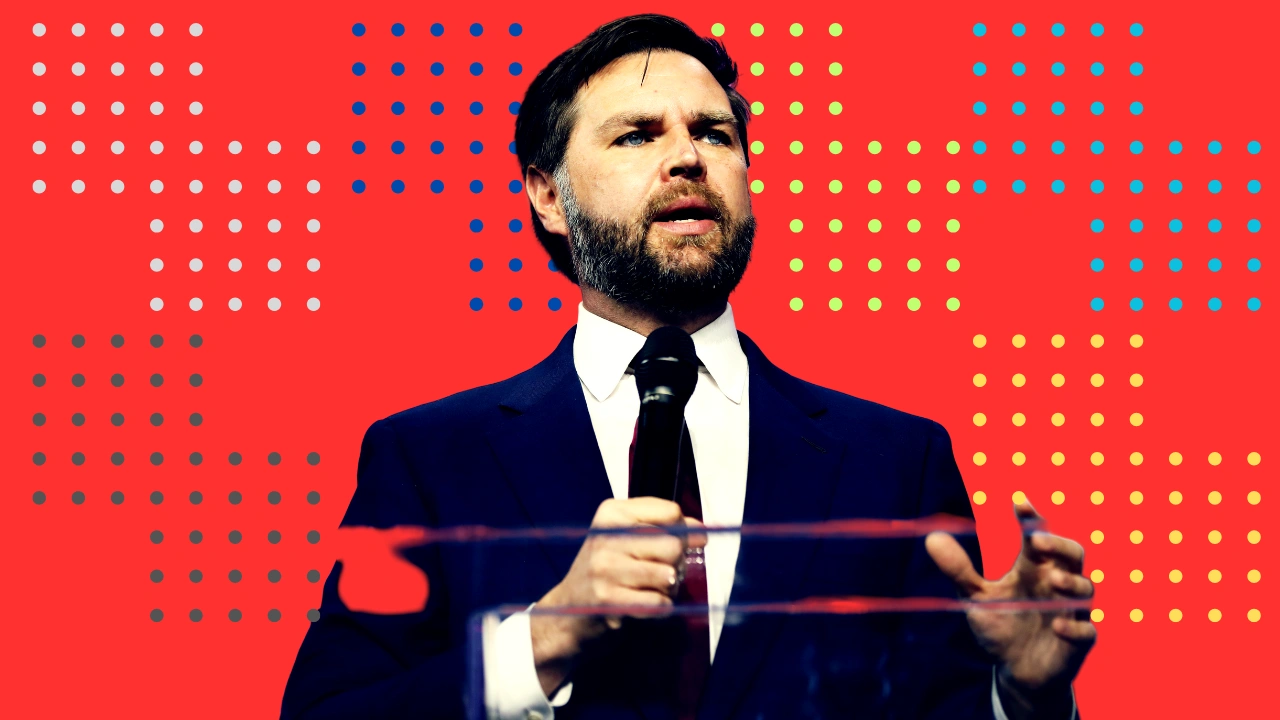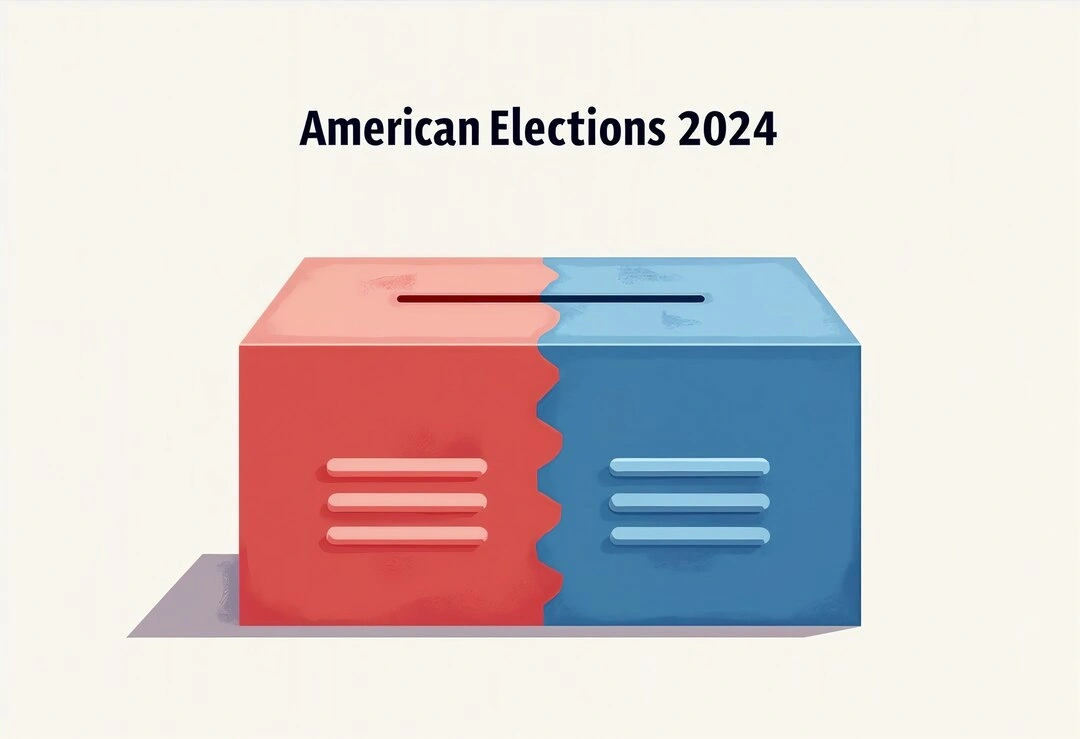NATO
Trump
Germany
International Relations

NATO
Trump
Germany
International Relations
Republican Senator J.D. Vance, appearing on NBC's "Meet the Press" on Sunday, declared that a potential second Trump administration would maintain the United States' membership in the North Atlantic Treaty Organization (NATO). However, Vance emphasized the need for a more equitable distribution of defense burdens among NATO allies, specifically highlighting Germany's responsibilities as Europe's largest economy.
Vance's statement directly addressed concerns surrounding Donald Trump's past pronouncements on NATO. During his first term, Trump frequently pressured European allies to increase their defense spending, sometimes employing forceful rhetoric. At a February rally, he recounted a NATO meeting where he allegedly threatened to allow Russia to act freely against nations failing to meet their financial commitments. These comments fueled anxieties about the future of the transatlantic alliance under a potential Trump presidency.
When pressed on NBC for a definitive answer regarding the US's continued participation in NATO under a Trump administration, Vance stated unequivocally, "We would stay in NATO." He did not, however, provide specific criteria for continued US involvement. Instead, he focused his criticism on the perceived imbalance in contributions from member states.
"It’s effectively the United Kingdom, a couple of other nations, and the United States," Vance stated, pinpointing Germany as a primary area of concern. "NATO’s problem is particularly that Germany has to spend more on security, has to spend more on defense." This statement reflects a recurring theme in criticisms of Germany's defense posture, particularly from those concerned about the nation's economic strength relative to its military spending.
While Vance didn't explicitly define a threshold for acceptable German (or other nations') defense spending, his remarks clearly signal an expectation of significantly increased contributions. The implication is that a failure to meet unspecified, yet clearly elevated, defense spending targets could potentially jeopardize the US commitment to NATO, despite Vance's clear assertion of continued membership.
Vance also addressed the issue of Russia and its President Vladimir Putin. He avoided labeling Putin an outright "enemy," instead characterizing him as an "adversary" and "competitor." Vance argued that cooperation with Russia might be necessary to achieve an end to the ongoing conflict in Ukraine. This stance, while acknowledging the adversarial nature of the relationship, hints at a potential willingness to engage in diplomatic efforts with the Russian government, even while acknowledging Russia's actions as problematic.
In contrast to his nuanced view of the Russia-Ukraine conflict, Vance was more direct in his assessment of China, explicitly identifying it as the most significant threat to the United States. This declaration underscores a shift in geopolitical focus, highlighting the perceived threat from China's rising global power and influence.
The implications of Vance's statements reach far beyond the immediate political context. His remarks have prompted renewed debate surrounding the future of NATO, the balance of power in Europe, and the nature of the relationship between the United States and its allies. His call for increased German defense spending reflects a broader concern about the adequacy of European defense capabilities, suggesting a potential need for reassessment of resource allocation and strategic priorities within the European Union and individual member states.
The issue of equitable burden-sharing within NATO has been a recurring point of tension for years. While all members have agreed to allocate 2% of their gross domestic product (GDP) to defense spending, many, including Germany, have consistently fallen short of this target. Vance's remarks underscore the growing pressure on Germany, and other NATO members, to meet their financial obligations and contribute more substantially to the collective security of the alliance. The pressure is not just financial, but also symbolic, representing a desire for a more active and equally committed partnership.
The political ramifications of Vance's statements are equally significant. His assertion that a Trump administration would remain in NATO offers a degree of reassurance to those concerned about the alliance's stability. However, the accompanying emphasis on increased defense spending from key European partners, particularly Germany, indicates a potential for continued tension and negotiation within the alliance. The conditional nature of the reassurance—implicitly hinging on increased contributions—leaves room for future disagreement and potential policy shifts.
Furthermore, Vance's characterization of Putin and his discussion of potential cooperation with Russia in ending the Ukraine conflict, while controversial, highlights the complex geopolitical landscape and the need for navigating difficult relationships in pursuit of global stability. This suggests a potential for pragmatic approaches to diplomacy, even with adversaries, in the pursuit of specific political goals.
The contrasting assessments of Russia and China – one requiring potential cooperation, the other a clear and present threat – reflect the differing perceived levels of immediate and long-term risk. This strategic prioritization will likely influence the allocation of resources and the focus of foreign policy initiatives under a potential Trump administration.
In conclusion, Vance's comments offer a complex and multifaceted view of foreign policy under a potential second Trump term. While assuring NATO membership, he also emphasizes the crucial need for increased contributions from key allies, particularly Germany. This conditional support underscores the importance of burden-sharing within the alliance, and potentially reveals key areas of tension and negotiation within the framework of transatlantic relations. The different approaches suggested towards Russia and China highlight a strategic prioritization that will be closely followed by global observers. The statements provide a critical insight into the likely foreign policy approach of a potential Trump administration, with significant implications for global stability and security.
SHARE


news
30th October 2024

news
30th October 2024


news
30th October 2024

news
30th October 2024


news
30th October 2024


news
30th October 2024


news
30th October 2024